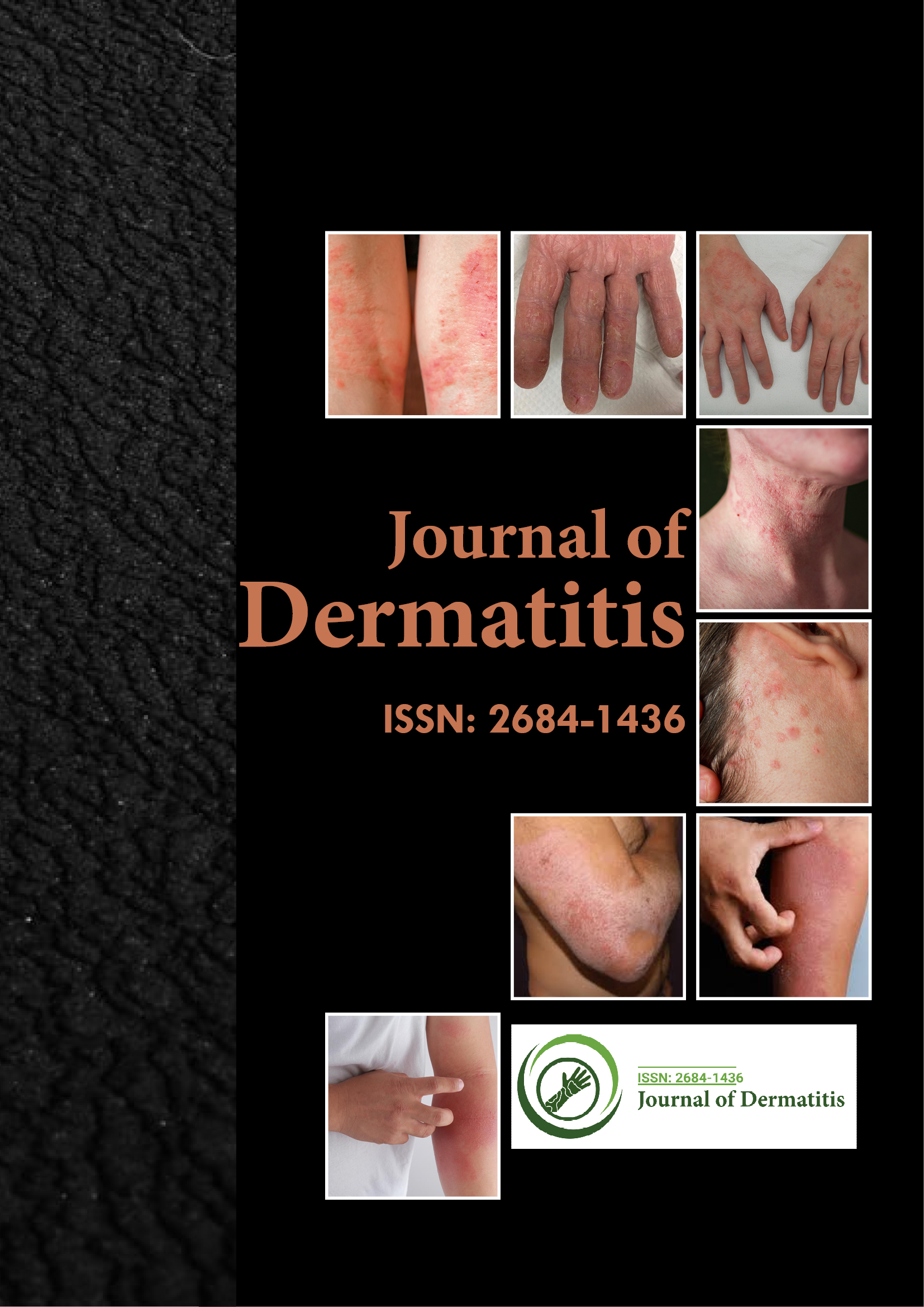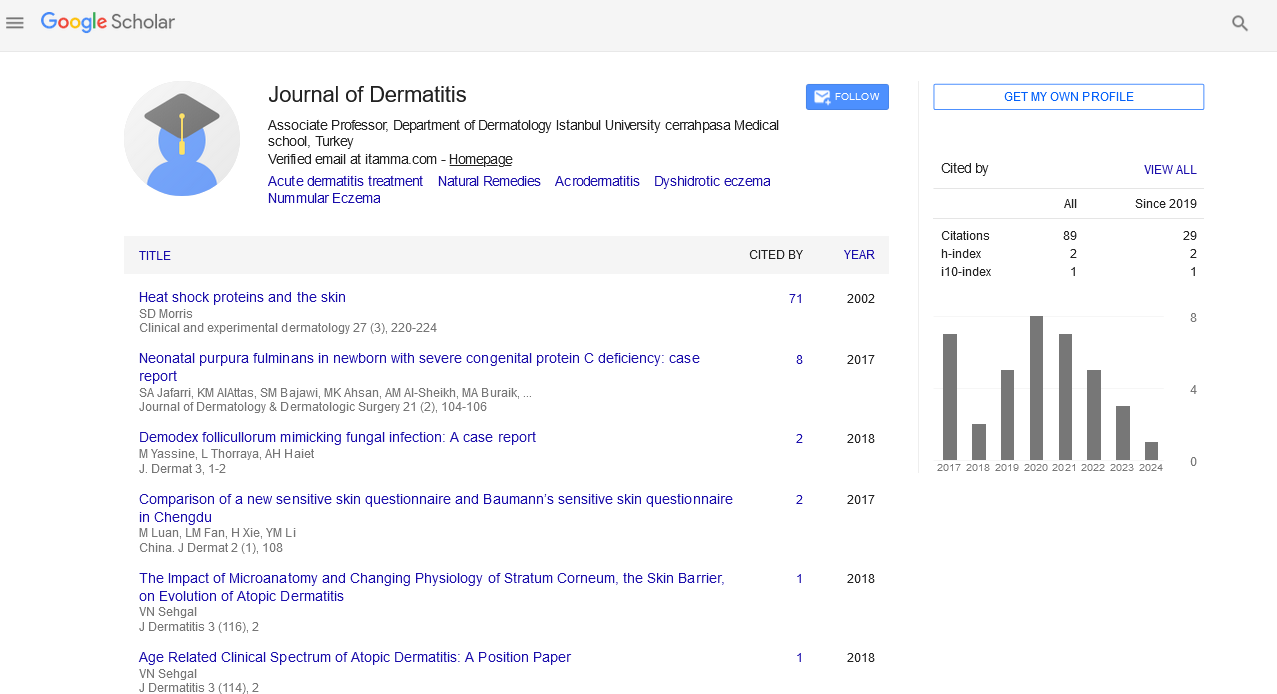Indexed In
- RefSeek
- Hamdard University
- EBSCO A-Z
- Euro Pub
- Google Scholar
Useful Links
Share This Page
Journal Flyer

Open Access Journals
- Agri and Aquaculture
- Biochemistry
- Bioinformatics & Systems Biology
- Business & Management
- Chemistry
- Clinical Sciences
- Engineering
- Food & Nutrition
- General Science
- Genetics & Molecular Biology
- Immunology & Microbiology
- Medical Sciences
- Neuroscience & Psychology
- Nursing & Health Care
- Pharmaceutical Sciences
Immunolocalization of NRF2 in acne vulgaris
22nd World Dermatology Congress
September 27-28, 2021 | Webinar
Haytham El Sayed Ali
Al Azhar University, Egypt
Scientific Tracks Abstracts: J Dermatitis
Abstract:
State of problem: Acne vulgaris is a common skin condition. It is characterized by a variable combination of comedones, pustules, infl ammation, and scarring. NRF2 is a basic leucine zipper (bZIP) protein that produced in response to oxidative stress to induce the expression of antioxidant genes to protect against oxidative damage as well as several target genes that regulate both cell proliferation, differentiation and infl ammation. The purpose of the present study is to evaluate the possible role of NRF2 in the pathogenesis of acne vulgaris. Methodology & Theoretical Orientation: Immunohistochemical localization of NRF2 in infl ammatory and non infl ammatory acne compared to normal skin was performed, in addition of correlating NRF2 expression with the clinical and pathological parameters of acne. The current study investigated thirty patients with acne and 30 controls. NRF2 was expressed in the acne group compared with the control group (p<0.001). This was demonstrated by higher expression positivity (perifollicular (66.7%), follicular (60%) epidermis and dermis (50%), intensity and H score in cases than in those of controls (43.3%). NRF2 was demonstrated to correlate to disease infl ammation as it was upregulated in infl ammatory acne than in non infl ammatory (p<0.001). NRF2 expression in perifollicular and follicular epidermis was associated with early age onset p<0.001 & p=0.008 and with moderate and strong infl ammatory severity p=0.006 & p=0.009 respectively. Conclusion & Signifi cance: The upregulation of NRF2 in response to the oxidative stress could participate in acne pathogenesis through its role in both sebaceous gland and hair follicle proliferation, differentiation and through its infl ammatory effect. Using of NRF2 target therapy could be benefi cial in treatment of acne.
Biography :
Haytham El sayed Ali, MD,Histology department, faculty of medicine, al azhar university completed PhD two years ago.

